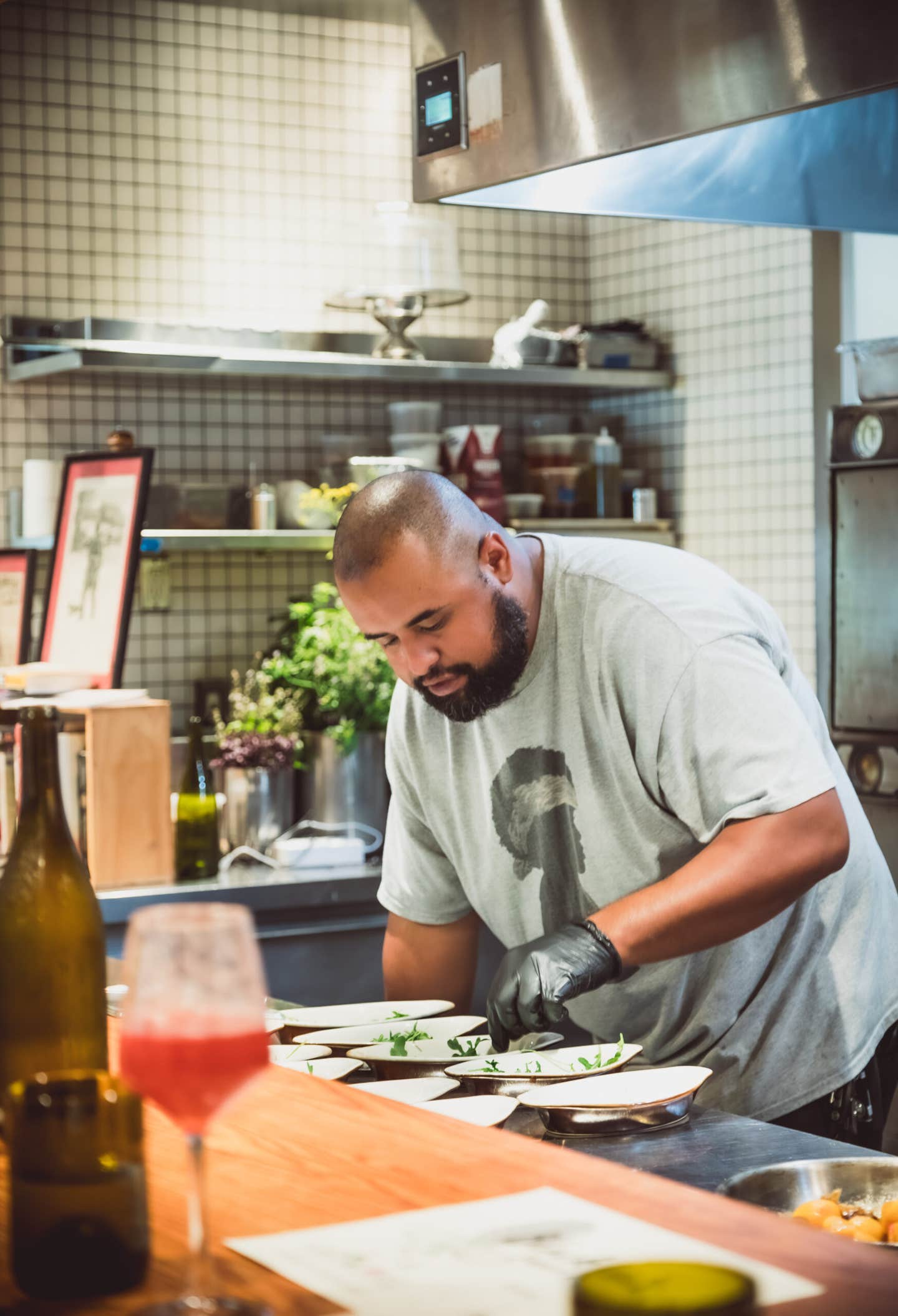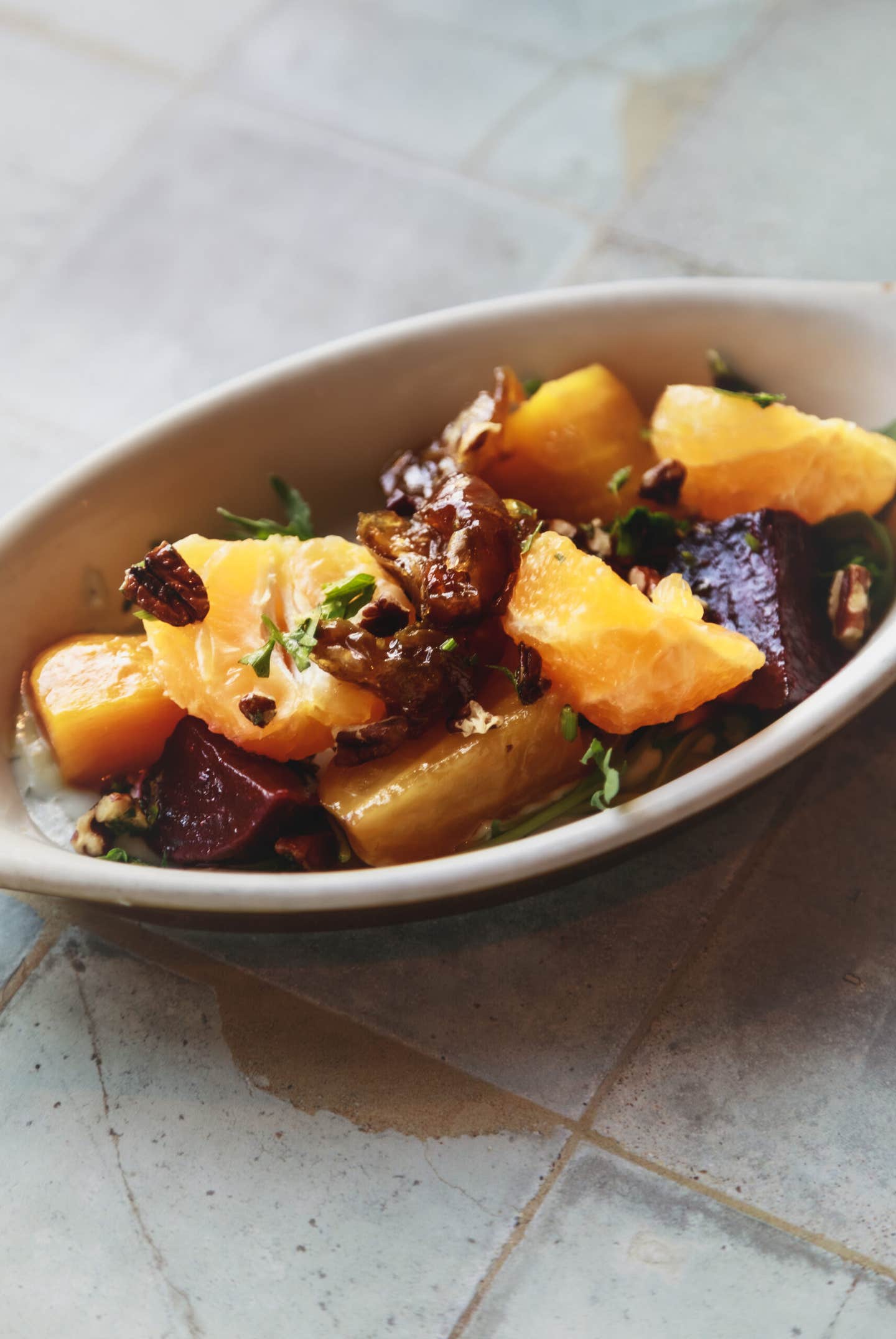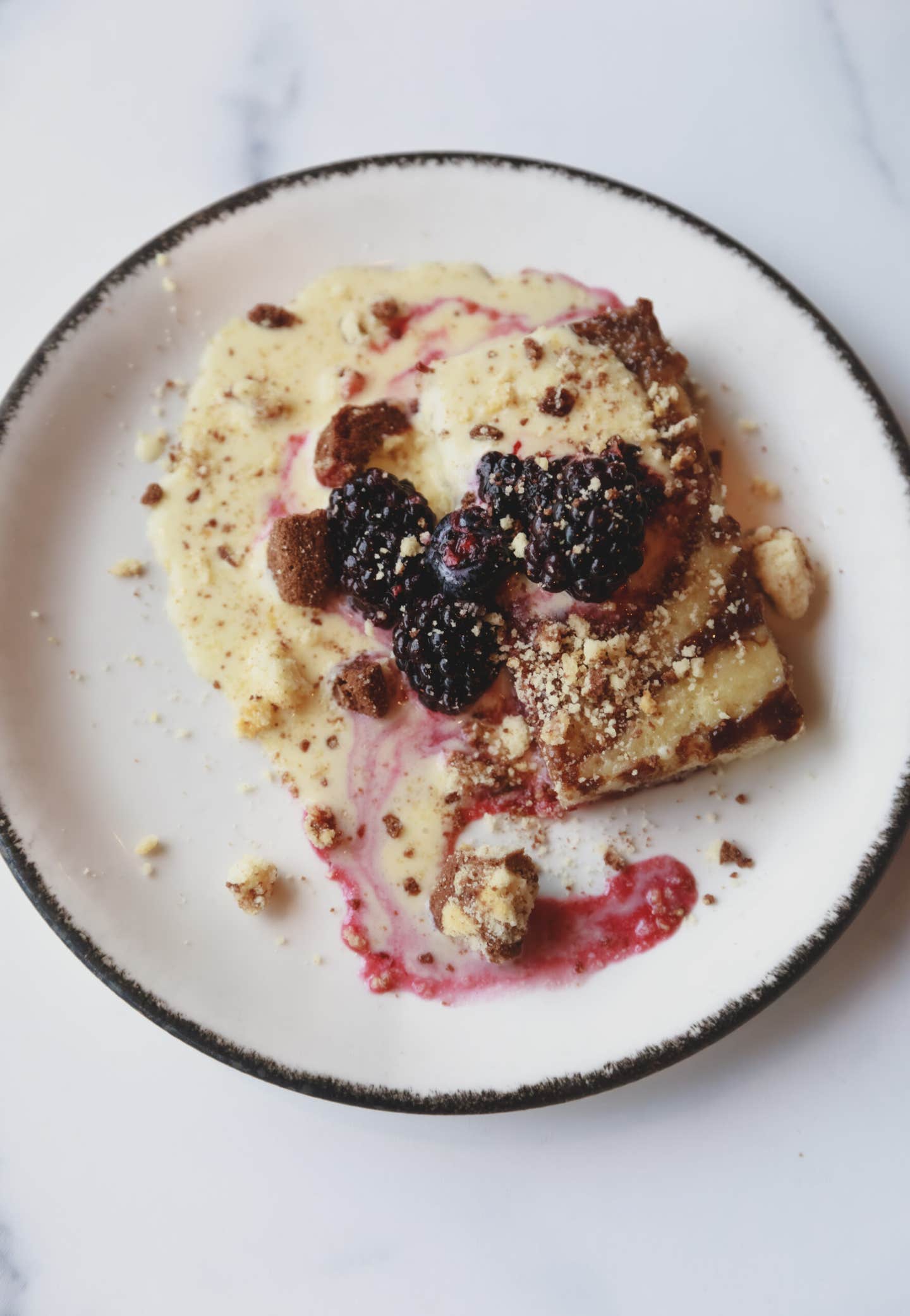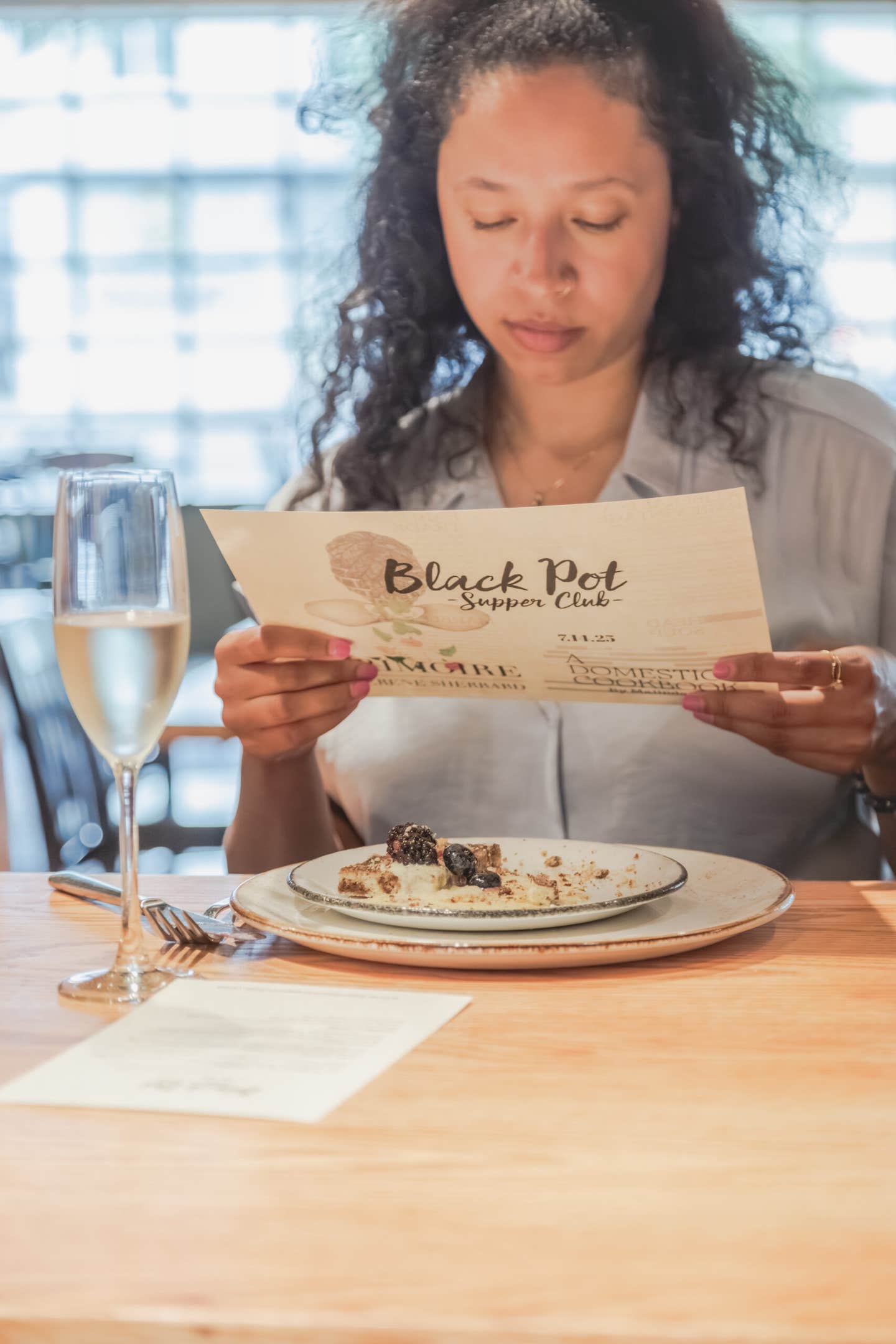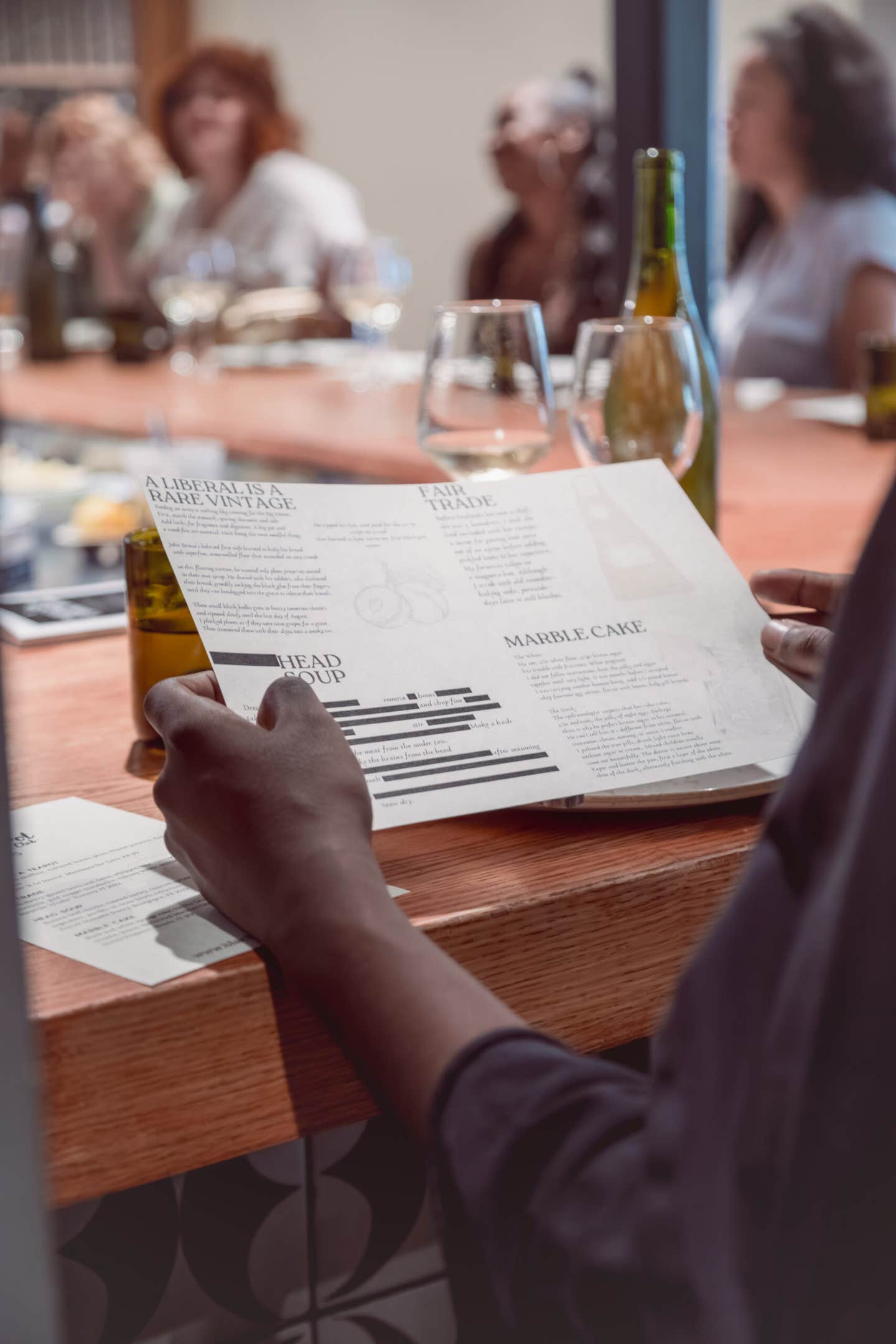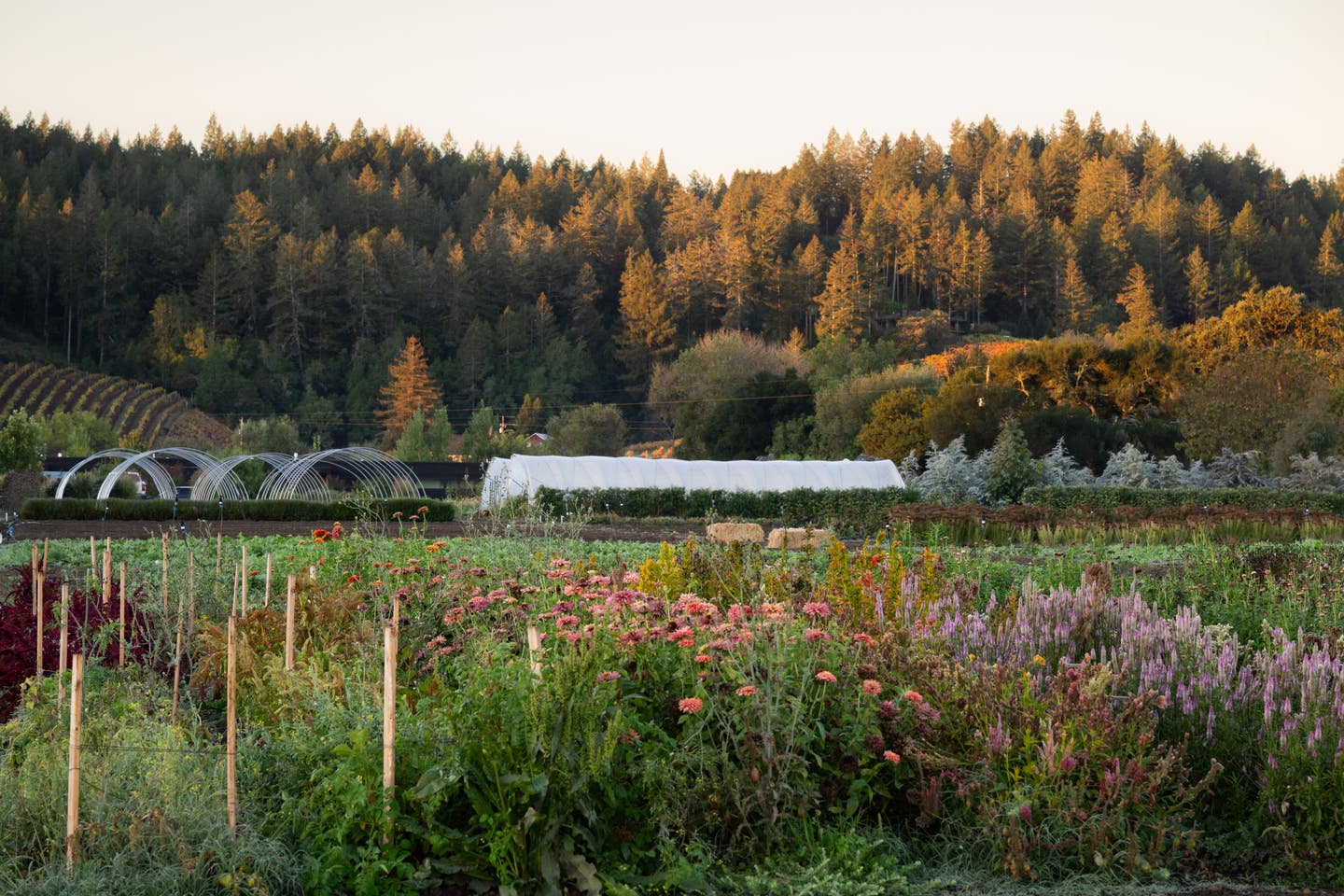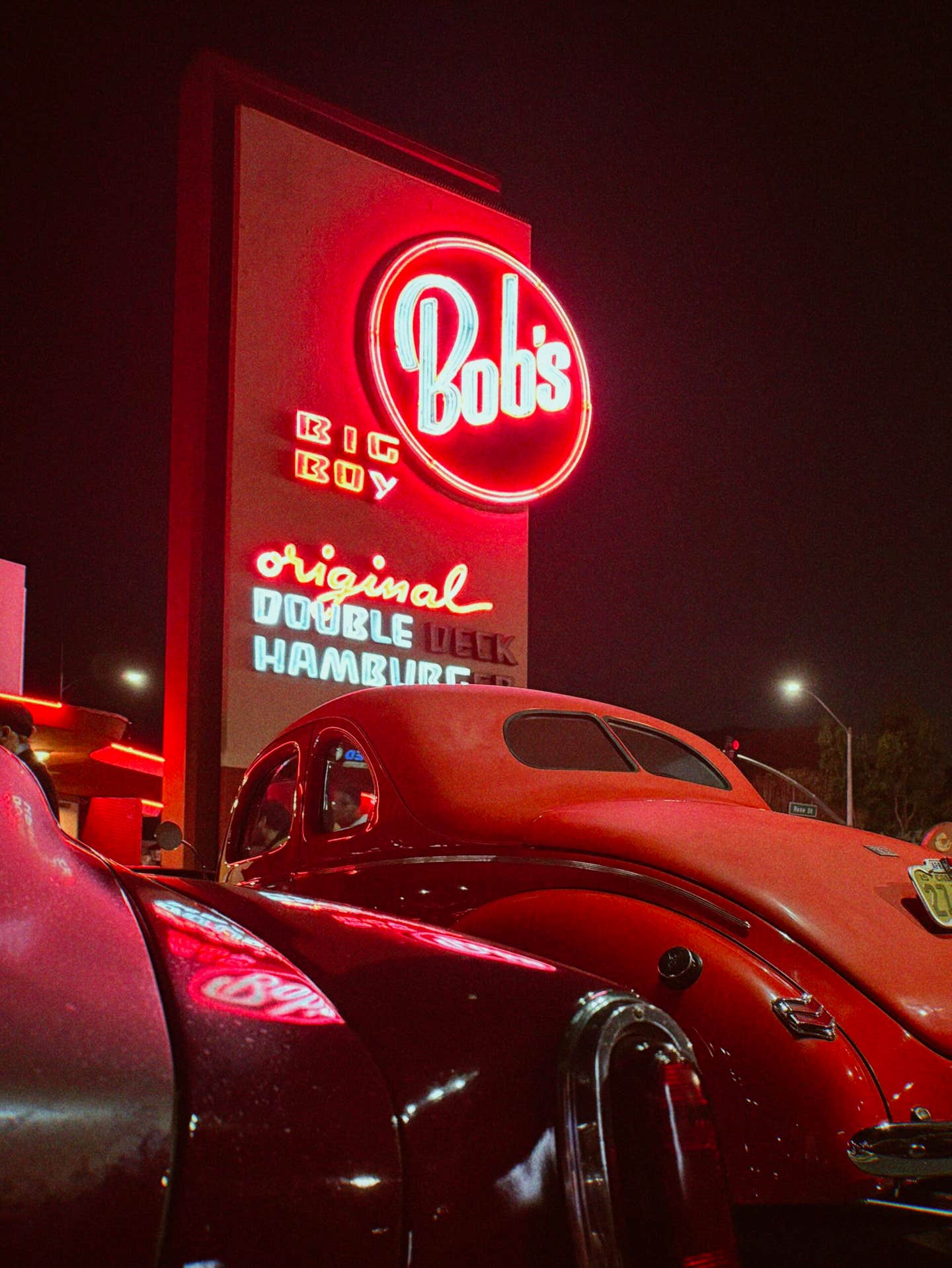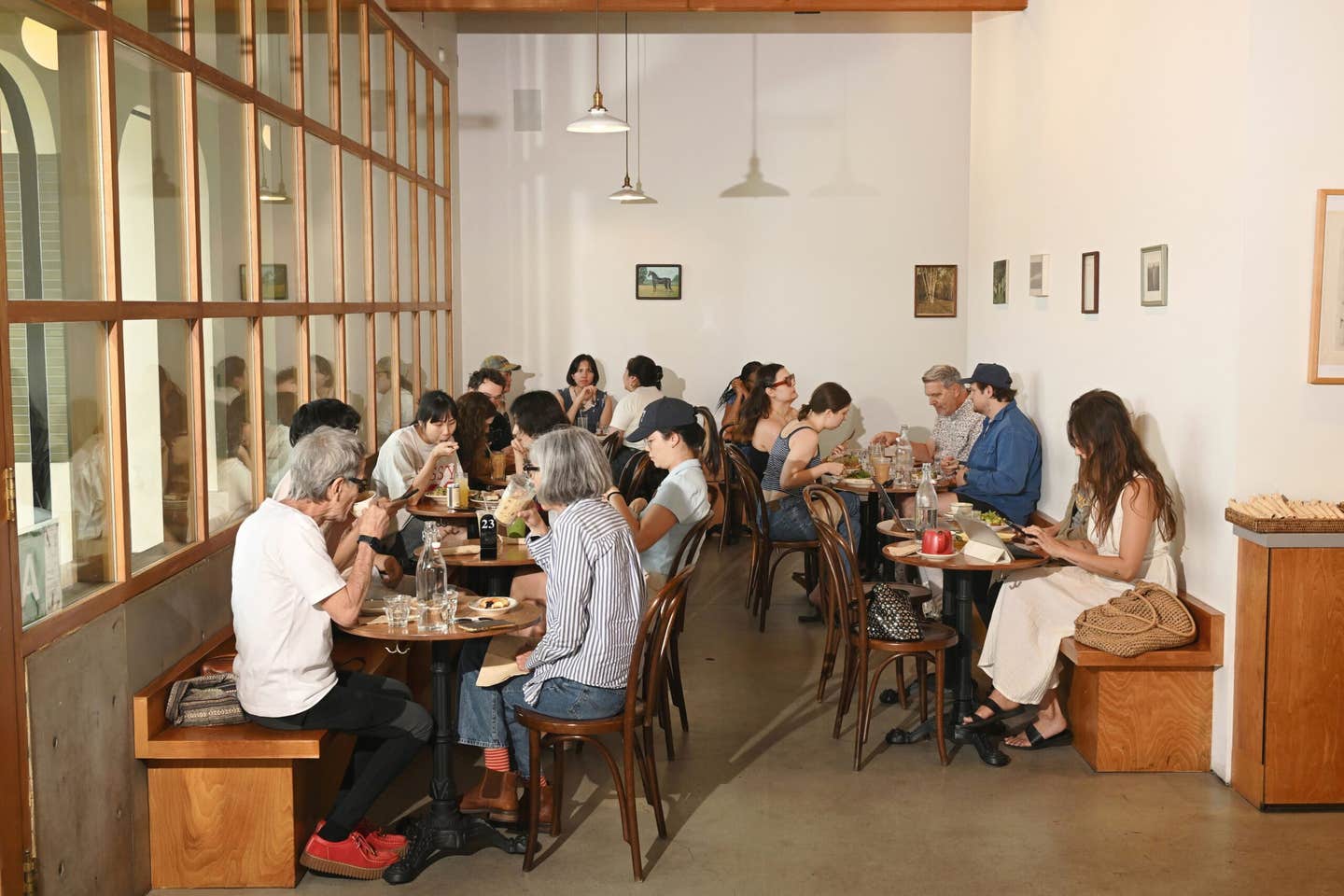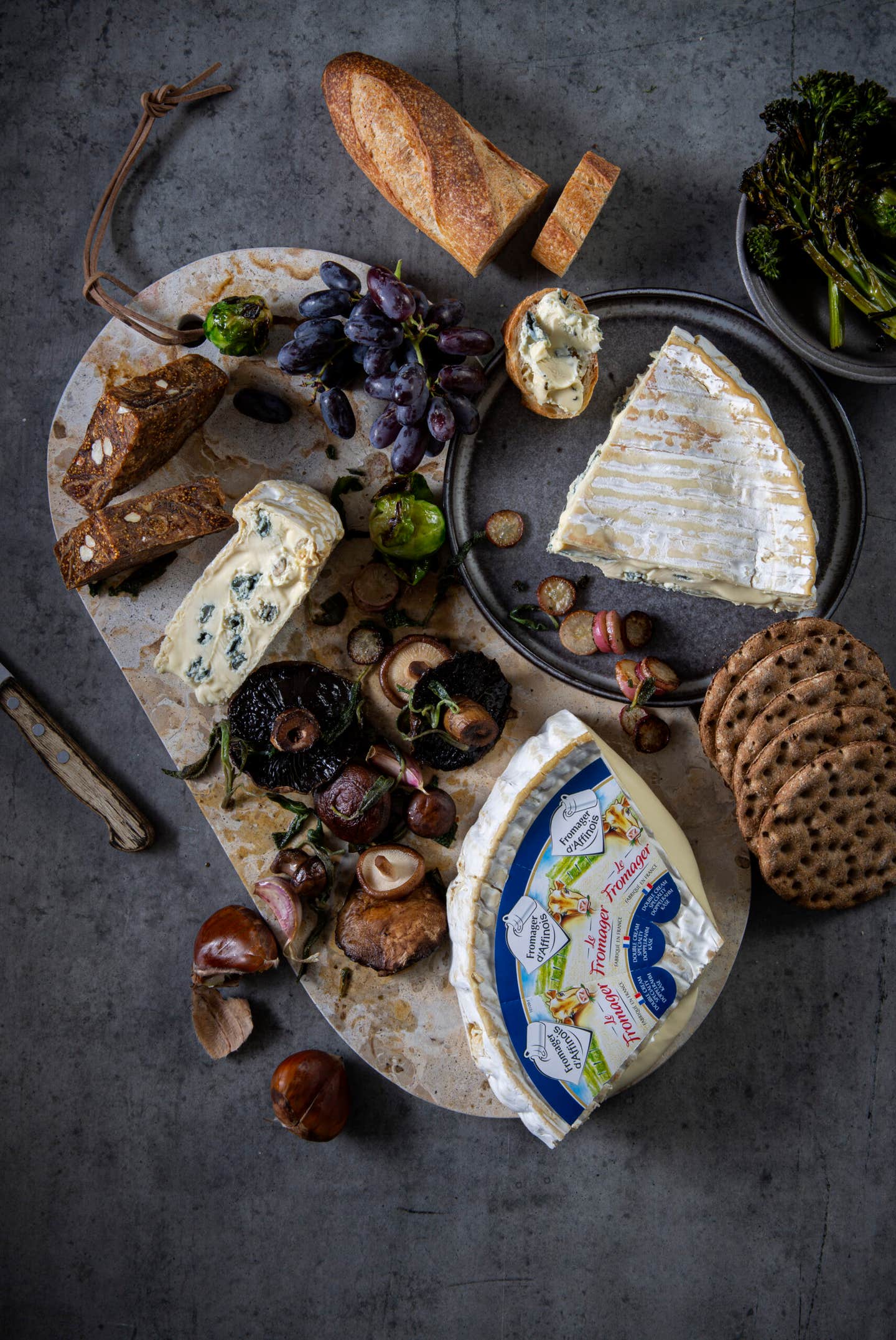Black Pot Supper Club Magic
Los Angeles native Martin Draluck is celebrating Black culinary excellence, joy, and resistance with his Black Pot Supper Club.
By Rose Wilde , Photos by Carolina Korman
Los Angeles native Martin Draluck is celebrating Black culinary excellence, joy, and resistance with his Black Pot Supper Club. Hosted at the intimate central bar inside Alta Adams restaurant in the historic West Adams neighborhood, the dinner series features historically inspired menus that expertly weave the Black foundation of American cuisine into the dining experience.
Draluck draws you in with his passionate and encyclopedic knowledge of the Black origins of food and its founders since the beginning of our nation—the first chefs to Presidents, the original restaurateurs, and the earliest cookbook authors.
Sitting with Draluck on the back patio of Alta, it is easy to see why years ago he was tapped for the Netflix documentary series “High on the Hog.” Draluck is charismatic and generous with his knowledge, listing off names, dates, flavors, and cultural reference points faster than I can write them down. Chatting with him is akin to casually dropping into a master class on Black foodways, and it’s easy to see why so many chefs, media houses, and brands are eager to collaborate.
In a few short years, he has amplified Black stories for the FX launch of “Kindred”; presented a dinner series with Adrian Miller, winner of multiple James Beard Awards and co-author of The President’s Kitchen Cabinet; cooked for The Links, a prestigious Black women’s organization; and taught many story-driven culinary workshops within the University of California system, including UCLA and UC Davis.
I attended the third dinner of the series, the one celebrating Malinda Russell, whose self-published book A Domestic Cookbook was first printed in 1866. As the first known American cookbook, its existence is astonishing as it was published [right after] the Civil War by a free Black woman to support herself and her disabled son. To make it even more interesting, Draluck was inspired by poet Cherene Sherrard’s Grimoire, a collection of poems in turn inspired by Russell’s cookbook.
It was amazing to watch Draluck use the poems to inspire his dishes, creating a synergy of feeling and flavor. Sherrard also read aloud her poems before we dug into the corresponding dish. A standout was beets glazed in apple juice with dates, buttermilk-whipped blue cheese, citrus, chicory and walnut gremolata with its poem, “Fair Trade.” The Marble Cake, swirled black and white, brushed with olive oil, and served with custard and blackberries brought me to tears as Sherrard read her poem in which a mother thinks of the challenges her mixed-race son faces in the world. This is soulful food.
Here is a bit more of our conversation on the back patio at Alta:
Edible LA: What’s the significance of the name Black Pot Supper Club?
Draluck: Black Pot Supper Club is named for the cast-iron pot. As a chef, it’s one of my favorite tools to use in the kitchen; it gives amazing flavor and cleans up easy. It is an heirloom in multiple cultures. It was the perfect symbol for us because it’s a way to pass on nourishment.
My mother taught me to love history and always understand who I was as a person of color. My grandmother’s story is that she was first arrested in her mother’s womb. She spent her entire life fighting for civil rights, women’s rights, Jewish rights, and farmworkers’ rights. My grandfather ran a barbecue place called Dem Bones BBQ in 1970s in Los Angeles. I am the sum of my family’s investment in me, and that’s why I do what I do with Black Pot Supper Club.
Edible LA: You have so many large events and collaborators you are working with, why is the intimate story-driven Black Pot Supper Club so close to your heart?
Draluck: [It’s] part of an ongoing civil rights fight. From the start it has been intimate—the more intimate the better. At large restaurants or events, it can be hard to tell these stories and connect. I launched the current iteration in my time at Post & Beam, where we cooked dinner series from the hearth we built outdoors in the garden. Now we’ve found a home inside Alta with Chef Keith Corbin.
Edible LA: What do you find inspiring about cooking from historic texts and literature?
Draluck: I want to keep these stories alive. I was really inspired by Cherene [Sharrard]’s book and thought there were strong tie-ins to the original cookbook. “Head Soup” was a poem created by redacting the recipe. I thought that was so cool and built my dish from that. The marble cake really hit home for me—me and my mom being of mixed race and cultures. There is so much to pull from; every dinner I look to make something new. With the James Hemings dinner the only thing that ever stays the same is the dessert. I make a snow egg, a meringue in custard. He was famous for this dessert. I try to have at least part of my cookbook collection at the dinners or to directly share the sources with my guests.
Other dinners in the Black Pot Supper Summer Series celebrate Black culinary luminaires like Hercules Posey, the first Presidential Chef to George Washington; James Hemings, who trained in France and cooked for Thomas Jefferson; Nat Fuller, whose Charleston restaurant The Bachelor’s Retreat hosted the largest biracial gathering of the time when it was used by the Union Army to celebrate a Civil War victory, and more. For more info go to check out the website here.
